Use Of “Misleading” Instagram Filters Is Being Cracked Down By British Advertising Watchdog
The last few years have seen a slew of reforms in the influencer marketing room, from the FDA’s ongoing inquiry into digital pharmaceutical ads to the Federal Trade Commission’s $15.3 million settlement with popular detox tea brand Teami in March 2020 – and already, “the goalpost has been pushed more in 2021,” according to marketing specialists. The Advertising Standards Authority (“ASA”), a self-regulatory body charged with ensuring that advertising in the United Kingdom is free of deceptive, negative, or derogatory ads in all media, has confirmed that beauty filters used by influencers in promotional posts can be manipulative if they help to magnify the impact that a particular product is capable of achieving.
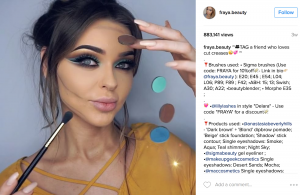
Since more people speak out against the prevalence – and sometimes unrealistic effects – of digital retouching and the ease with which images can be heavily manipulated online, the ASA is paying attention, and recently issued two opinions in which it determined that two influencers’ Instagram posts are liable to deceive buyers and that they violate the United Kingdom’s advertising code.
In the first example, the ASA identified two Instagram stories from endorser Elly Norris in which she used the “Perfect Tan” filter to darken her skin complexion. Norris emphasized the importance of two tanning products the whole time. As Garrigues SLP attorney Gina Navarro Pérez figures out, the company sent both items to Norris, who included a “paying relationship” tag as well as the hashtags #promo and #gifted, which helped to clarify the message’s paid existence. Nonetheless, the ASA determined that the posts were deceptive because Norris’ use of the “Perfect Tan” filter produced results that were directly related to the advertised effects of the self-tanning items, possibly leading to a false perception about the product’s performance capabilities, according to the ASA.
The second case involved an Instagram video by influencer Cinzia Baylis-Zullo in which she used the “Yourbeauty” filter to display a healthier, slightly more tanned complexion while also applying a tanning product and describing its effects. In a similar case to the previous one, the ASA concluded that using the “Yourbeauty” filter – which was directly linked to the product’s intended benefits – was likely to mislead customers about the tanning product’s performance. This was real, even though Baylis-video Zullo’s suggested that a filter had been used, according to the ASA.
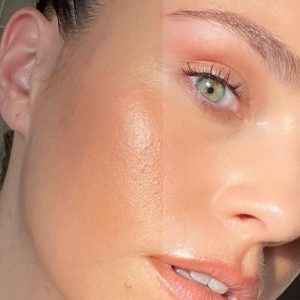

Both ASA decisions have gotten a lot of attention in the media, but are they really that significant? In some cases, they aren’t, according to Navarro Pérez, because the ASA’s choices “are not far off from the judgments it has already made in association with advertisements in the offline world.” Following a complaint from L’Oreal UK, the ASA ordered Christian Dior to delete an ad campaign featuring actress Natalie Portman that boasted about the French fashion house’s “volume-multiplying effect” mascara. According to the ASA, the “multiplying effect” was accomplished using Photoshop, which enhanced the duration and curve of the lashes, exaggerating the impact of the advertised Diorshow Mascara, and thus the ad could not keep running in its current form.
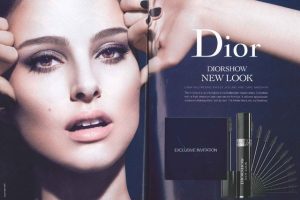

The Dior case, as well as these more recent Instagram-centric cases, are covered by Article 5 of the UK Unfair Competition Law, which bans “unfair commercial practices,” such as those that “substantially distort or [are] certain to materially distort business conduct concerning the average customer’s product.” As a result, the law refers to advertisements that contain inaccurate information or information that, while factual, may be deceptive to the average customer due to its content and has the potential to influence consumers’ economic conduct. With this in mind, Navarro Pérez believes that the “million-dollar concern” (or probably more, depending on the price and reach of the ad in question) is whether customers actually expect to achieve the impact that influencers advertise.
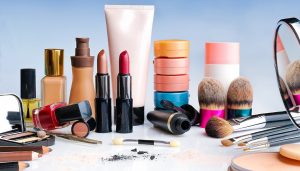

Given the difficulty in determining what the average consumer expects, she advises advertisers to “err on the side of caution, review the influencer marketing policies of the cosmetics brands in question, and, where applicable, require the influencers that companies work with to prevent from applying beauty filters or retouching their posts (adjusting the color, brightness, or sashing).” They are grossly exaggerating the results that can be anticipated of the substance they are promoting when doing so.
Transparency is being pushed harder
The ASA’s decisions follow the introduction of new legislation by British MPs last year that, if approved, would require advertisers, broadcasters, and publishers to show a health warning when subjects’ bodies or faces are digitally manipulated in advertisement campaigns. “The bill is intended to counter stereotypical portrayals of attractiveness in the media and online,” the BBC wrote in September when the proposal was first introduced by Dr. Luke Evans MP, a representative of the Health and Social Care Committee.
Similar laws exist in France, according to the BBC, which has demanded that ads that have been artificially changed to render a model’s profile “narrower or wider” be labeled as such since 2017. The legislation, which is part of the French Health System Modernization Act, mandates that digitally updated photographs published in advertising, the media, on the internet, and in catalogs in France be accompanied by a “Photographie retouchée” (or “touched up photograph”) if the retouching “has modified the physical features of models.”
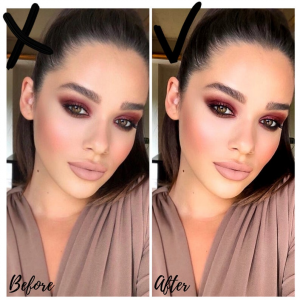

According to Bryan Cave lawyers Kathie Claret and Emmanuelle Mercier, the French law “provides that the entity responsible for complying with the obligation to disclose the airbrushing of pictures is the ‘advertiser,’ i.e., the company that is advertising its products,” which means that “fashion and cosmetics companies are directly concerned, but all companies that feature mod” are also affected.
To present, no big fashion industry brands have made news for their inability to follow the rule, implying that either they have all complied or that the law is being enforced laxly. The latter is the case with some of the model “health” laws passed in recent years, which have focused on ensuring that models are in better physical condition (i.e., they are not “too thin”) in order to legally work in countries such as France, India, Israel, Italy, and Spain, but have ultimately proven “staggeringly easy to work around,” according to Business insider.








